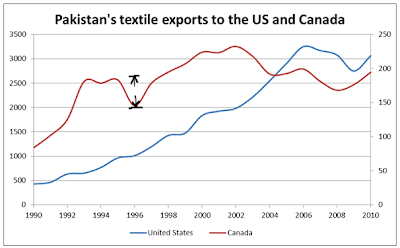A doctoral student whose research focuses on the Shiites of Lebanon had his computer confiscated by the US authorities as he travelled in May 2010 from Montreal to his home in Brooklyn, New York.
Under the new rules, the US authorities are permitted to seize computer and other digital equipment of visitors at any port of entry.
Listen to his story in his own words where he explains how he was detained as he travelled to the US with his mother on the Mothers’ Day.
Note that as of July 2011, more than a year after the event in May 2010, McGill University has no reports listed on its website of the ill-treatment of its student by the US government.
----
Bloomberg News, sent from my iPhone.
Laptop Seizure, Search at Border Challenged by Student’s Suit
July 9 (Bloomberg) -- A U.S. judge is weighing whether to halt a lawsuit filed by a graduate student whose laptop was seized by customs agents as he crossed the border from Canada and found to contain pictures of rallies by Hamas and Hezbollah.
U.S. District Judge Robert Korman in Brooklyn, New York, yesterday put off ruling on whether to allow the case to go forward. Pascal Abidor, a 27-year-old U.S.-French dual citizen, represented by the American Civil Liberties Union, seeks to force border guards to show a “reasonable suspicion” before searching laptop computers and other devices.
Abidor brought the case against the U.S. Department of Homeland Security and its secretary, Janet Napolitano, in September, saying such seizures violated the constitutional rights to free speech and to protection against improper searches.
“There are lots of burdens people are subject to in order to protect their own security and the security of others,” Korman said at a hearing yesterday. He said people can choose to travel without sensitive information if they fear it will fall into the wrong hands, just as they did 20 years ago before personal computers became commonplace.
“Not everyone has the choice to leave behind confidential information,” said Catherine Crump, a lawyer for the ACLU, citing attorneys and journalists.
More than 6,500 people, around half of them U.S. citizens, had electronic devices searched in a 20-month period starting in October 2008, according to Abidor’s complaint. In an eight-month period, 220 electronic devices were held, lawyers for Abidor said.
Broad Policies
Broad policies grant border guards access to information even if it enjoys medical, legal or journalistic privilege, and those policies don’t set limits on how long authorities can keep electronic devices, the lawyers said.
The U.S. said only one in 90,000 people coming into the country is searched, a necessary practice to detect drugs, child pornography and money laundering. The Supreme Court in 2004 found that the belongings of people entering the U.S. can be searched without “reasonable suspicion, probable cause or warrant,” lawyers for the U.S. wrote in court filings. Electronics such as laptop computers and mobile phones fall under that rule, the U.S. said.
Abidor, an Islamic studies graduate student at McGill University in Montreal, was taken aside by U.S. officials on a train on his way home to Brooklyn in May 2010. Customs agents searching his laptop found images of rallies by Hamas and Hezbollah, both designated as foreign terrorist organizations by the U.S State Department.
Doctoral Thesis
The pictures were downloaded from the Internet as part of his research into Shiites in Lebanon, the topic of his doctoral thesis, Abidor said he told the agents. He said he was patted down, handcuffed, taken off the train and held in a cell for three hours before being released without charge.
Abidor said he didn’t get his laptop, with the sole copy of his graduate work, for 11 days. When he did, there was evidence that his files, including research, personal photos and chats with his girlfriend, had been searched, he said.
The lawsuit was also brought on behalf of the National Press Photographers Association, some of whose 7,000 members have been subject to searches and seizures, according to court papers.
The case is Abidor v. Napolitano, 10-cv-04059, U.S. District Court, Eastern District of New York (Brooklyn).








